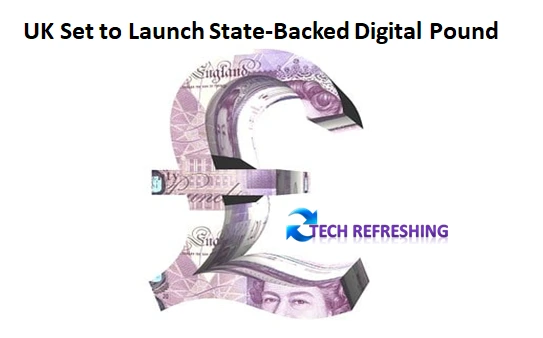
UK Set to Launch State-Backed Digital Pound
The Bank of England and the UK Treasury are planning to launch a state-backed digital pound later this decade, aimed at providing a safe and accessible form of money in the digital age. The Chancellor of the Exchequer, Jeremy Hunt, has announced that the central-bank digital currency (CBDC) could be a new and trusted way to pay, but the launch will not occur until 2025 at the earliest.
Consultation Begins for Digital Currency
On Tuesday (07th Feb, 2023), a comprehensive evaluation of digital currency is set to commence, bringing together the Treasury and the Bank of England to assess the feasibility of creating a central bank digital currency (CBDC), also known as the digital pound. The Bank of England, tasked with the investigation by Prime Minister Rishi Sunak in 2021, aims to launch a stable digital currency that offers a consistent exchange rate of 10 digital pounds to £10 in physical currency, providing a more reliable alternative to the volatility of cryptocurrencies.

Consumer Choice and Privacy
The digital pound will provide consumers with a range of wallet providers to securely store their digital funds. Depending on their preference, consumers can opt for varying levels of privacy with their wallet provider. Some may be willing to sacrifice their transaction data privacy in exchange for discounts, while others may prioritize complete anonymity. The Treasury seeks to foster innovation and offer consumers a variety of choices to meet their individual needs and preferences.
Maintaining Monetary Sovereignty
The UK’s focus on launching a digital pound is aimed at maintaining its monetary sovereignty against the influence of tech companies. Unlike cryptocurrencies, the digital pound will be backed by the Bank of England and will have a constant value. The UK is not actively seeking to make the digital pound an international means of exchange, like the digital dollar or the digital euro, but rather wants to ensure that it remains in control of its own monetary system.
Potential Impact on the Economy
The postponement of the digital pound launch could have adverse impacts on the economy, as cautioned by Financial Services Minister Andrew Griffith in October 2022. Every day that the launch is delayed opens the door for international private sector players to make inroads into the finance and technology industries, which could limit the opportunities for the UK.
Control of Transactions Data
Neither the Bank of England nor the government will have access to the transaction data with the digital pound, which offers a new level of privacy for consumers. Companies that control transaction data, such as Amazon or Facebook, would have access to a valuable asset, potentially creating walled gardens and fragmenting the pound system. The digital pound aims to address this by offering consumers a range of providers to hold their digital cash, with varying degrees of privacy.
International Competition
Bigger blocs such as the US and the Eurozone are also looking to establish their digital currencies as international means of exchange. The UK is not actively seeking this goal but rather focusing on maintaining its monetary sovereignty. The digital pound aims to address the challenge posed by the increasing influence of tech companies in the finance industry.
Conclusion
The introduction of the state-endorsed digital pound aims to bring safe and user-friendly digital currency to the public and has the potential to transform the economy. With a focus on providing enhanced privacy and a variety of wallet options for consumers, the UK can maintain its monetary independence while also challenging the growing dominance of international private sector players in finance and technology. The launch of the digital pound represents a significant milestone in the evolution of money, as the digital era continues to advance.







